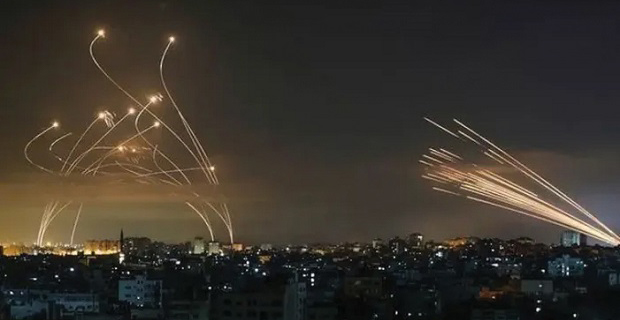A New Cold War With A Difference
New Delhi: The Middle East is in a situation of flux because of the recent exchange of drone and missile attacks between Iran and Israel, an important visit to Pakistan made by the Iranian President following these events, and the fallout of Israel-Hamas conflict that produced pro-Palestinian demonstrations in the US and elsewhere in the Muslim world.
This is opening up the question as to what impact are the religious divides in the region making on the ideologically delineated Cold War that was already on the horizon involving the US-led West on one hand and the China-Russia axis, on the other.
The old political rivalry between the two strong players in the region, Israel and Iran, took a violent turn when Israel -- opposed to the rule of Bashar Al Assad, the Alawite President of Syria -- made a missile attack on Damascus on April 1 in which Iran’s diplomatic mission was hit and seven officers of the Islamic Revolutionary Guards Corp were killed.
Iran retaliated on April 13 by firing missiles at Israel that were mostly shot down by the Iron Dome Defence system of the latter and a few days later on April 18 Israel responded by making a drone attack on Isfahan that reportedly did not cause any significant casualties.
There was an element of restraint on both sides which stemmed from a combination of factors -- Iran weighing in the US support for Israel and Israel sensing the limitations on American backing put by the international criticism of the loss of civilian lives in Gaza at the hands of Israeli Defence Forces.
In fact, in the Joe Biden administration, the White House was contemplating measures to balance its support to Israel with an effort to counter any Islamophobic trends that the Israel-Hamas conflict could produce following the October 7 ‘terror’ attack of Hamas on Israel. The US is also at the same time, having to deal with pro-Palestinian demonstrations held in the country, particularly on the university campuses there.
Iran and Pakistan, the two neighboring Islamic countries -- though inherently prone to the repercussions of the historical Shia-Sunni divide, have maintained a cautious line of peaceful relationship that could even overcome the incidents of exchange of missile attacks between them in January this year.











Comments.